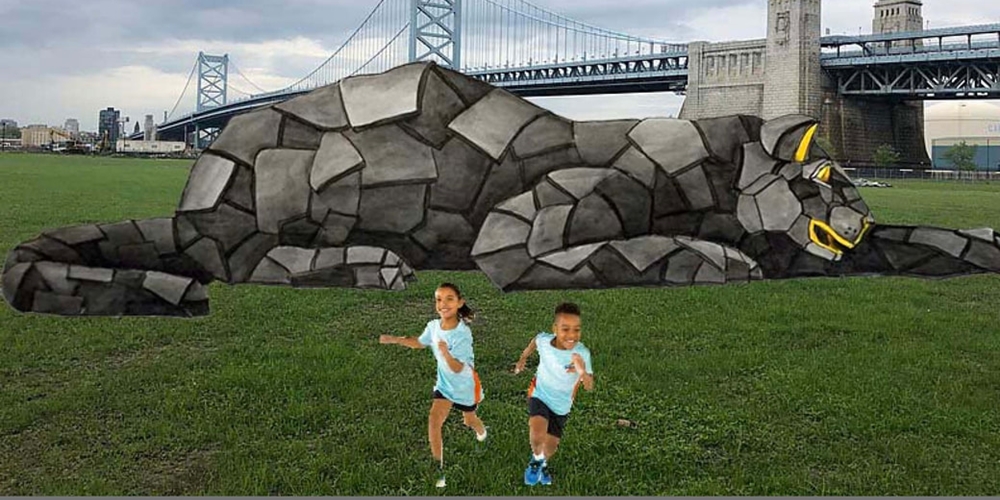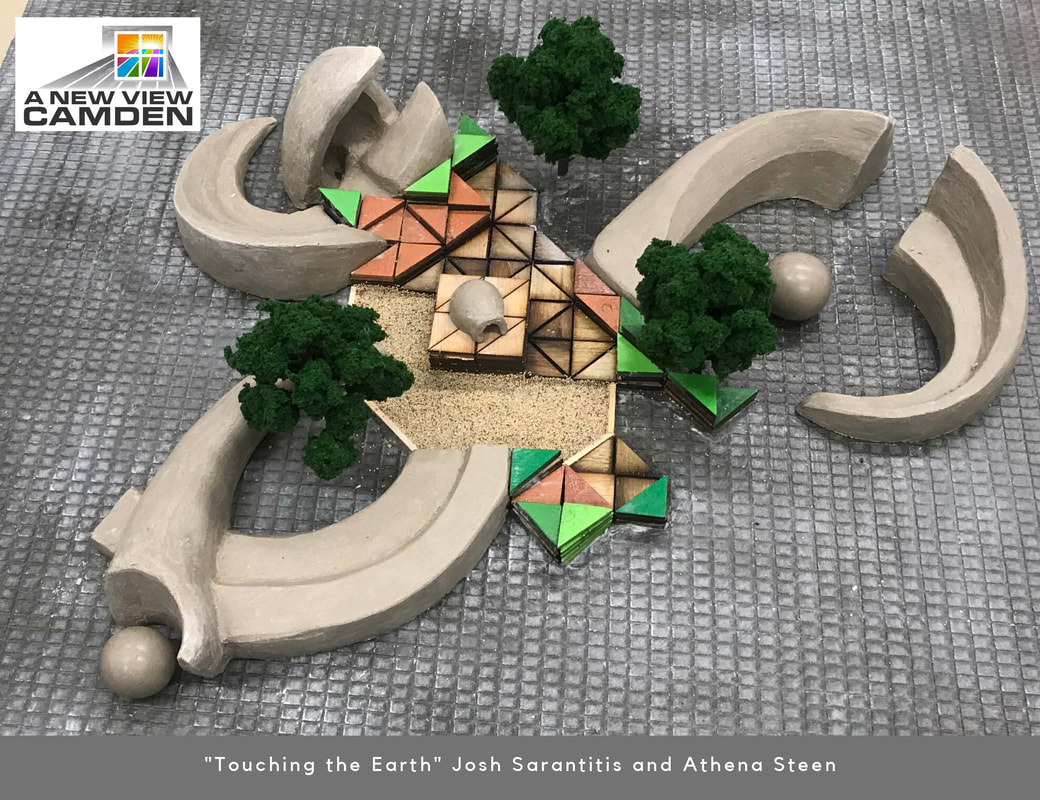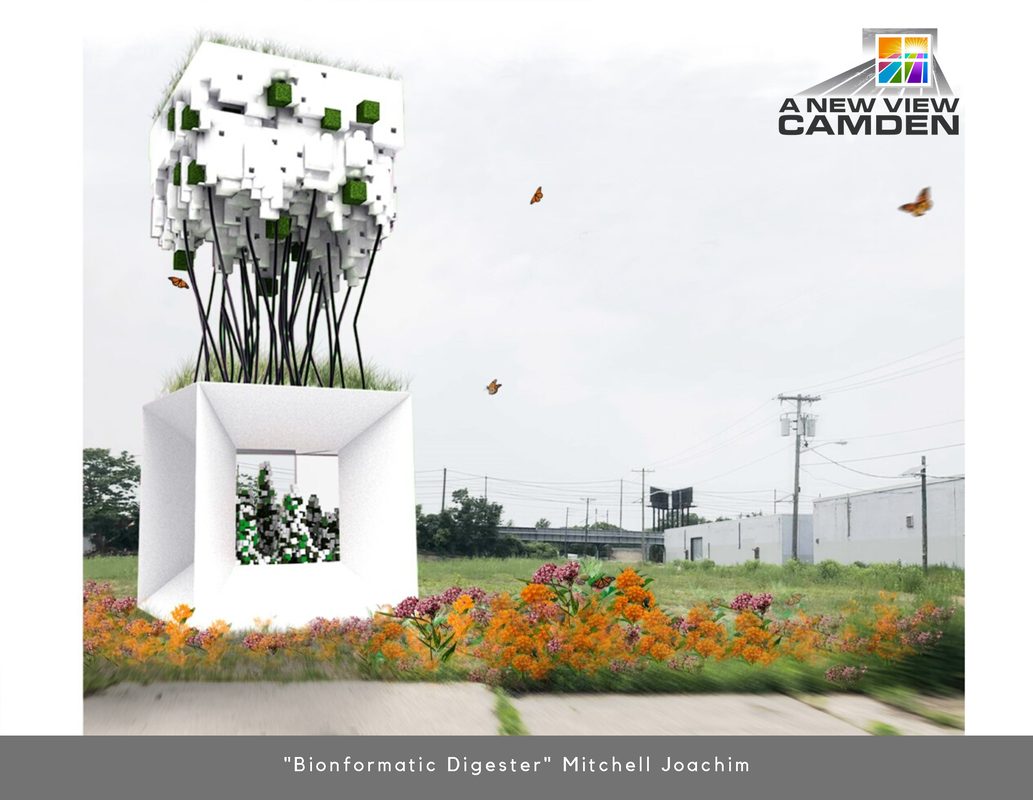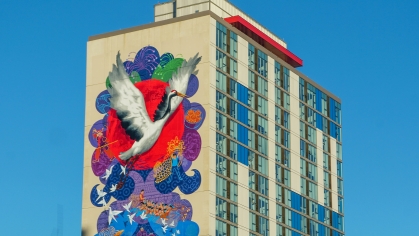Rutgers–Camden Center for the Arts Earns NJCH Grant to Support Community Art Installation Project Addressing Illegal Dumping in Camden
Grant will support a series of events featuring the artists, curators and community members; an exhibition, museum and educational programs, as well as a field guide for families with discussion topics and onsite activities
The Rutgers–Camden Center for the Arts – a lead partner in “A New View–Camden,” a Bloomberg Philanthropies-funded community art installation project that addresses illegal dumping in Camden – will continue the project where it left off last spring due to the COVID-19 pandemic, thanks in part to a New Jersey Council for the Humanities (NJCH) grant.

“I am very pleased that our organization was awarded a grant by the New Jersey Council for the Humanities,” says Cyril Reade, director of the Rutgers–Camden Center for the Arts. “This grant acknowledges that the important work of ‘A New View–Camden’ is about education, community engagement, and civic justice and equity.”
Reade notes that the $12,802 Incubation and Action Grant will support and expand the reach of the project as the artists now prepare for the April 2021 completion of the outdoor art installations. The NJCH grant is one of 15, totaling $202,840, awarded to help organizations plan, research, develop, and prototype public humanities projects and events.
“The RCCA, along with our partners Cooper’s Ferry Partnership and the City of Camden, looks forward to reengaging with the Camden communities energized by this project,” says Reade.
Bloomberg Philanthropies announced in January 2019 that the City of Camden was one of only five cities nationwide selected as a 2018 Public Art Challenge winner. The city received $1 million for the public art project that will transform sites plagued by illegal dumping along major transit corridors into dynamic art spaces, inspiring residents and attracting visitors. It will include art installations and creative programming at several sites along Camden’s rail, road, and bike routes. Additional information on the location of each art installation can be found at anewiewcamden.com.

As a lead partner in “A New View,” Rutgers University–Camden encourages residents to combat illegal dumping of household or industrial waste through education efforts and public-private partnerships. The city also aims to strengthen the local artistic community and improve the quality of life for Camden residents. The collaboration engages independent curators; the Camden Collaborative Initiative environmental consortium; and local arts groups, businesses, and residents.
To support education, community, and public programs for “A New View–Camden,” the Rutgers–Camden Center for the Arts Stedman Gallery is presenting ancillary programs that extend the reach of the project.
Program components funded by the New Jersey Council for the Humanities grant include a lecture series, featuring artists, curators and community members; an exhibition exploring the process and community responses; museum education and interpretation programs; and a field guide for families with discussion topics and on-site activities. Programs will be hosted at Rutgers–Camden and/or virtually depending on the pandemic climate.

The Rutgers–Camden Center for the Arts, a distinguished arts organization recognized by the New Jersey State Council of the Arts, provides performances, exhibitions, education programs, and community projects that inspire a full appreciation and enjoyment of the arts. The RCCA creates meaningful opportunities to participate in the arts, advances the central role of the arts in pre-K-12 education, and increases awareness of the arts as essential to cultural, economic, and community vitality.
Bloomberg Philanthropies has a proven track record of supporting creative and innovative public art. More than 400 cities have submitted proposals for consideration in the Public Art Challenge since 2014. The foundation’s inaugural Public Art Challenge catalyzed $13 million for local economies across the four winning regions and illuminated civic issues including economic decline, vacancy, water conservation and police-community relations.
The New Jersey Council for the Humanities funds nonprofit organizations to develop meaningful humanities projects for New Jersey audiences. The organization welcomes grant applications from libraries, museums, educational institutions, social service organizations, historical societies, cultural organizations, and other community organizations. Colleges and universities need to demonstrate meaningful public engagement beyond the institution to have a competitive proposal.


